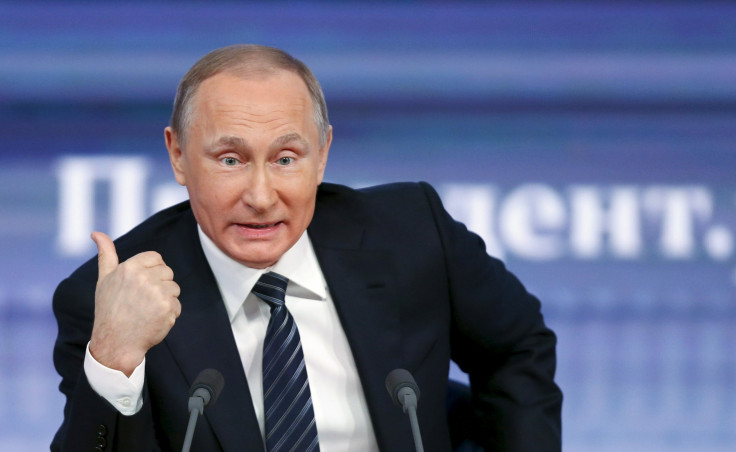Russian Sanctions On Ukraine To End? Putin Will Not Impose New Penalties On Kiev In 2016

Russian President Vladimir Putin said Thursday that does not want any sanctions imposed on Ukraine next year, but also that Kiev will not enjoy any of the benefits normally afforded to former Soviet states. While the news will be bittersweet to Ukraine, it does represent a sign of potential normalized ties between the two countries in conflict over war in East Ukraine and in a dispute over the annexed Crimean peninsula.
"Russia is not imposing whatever sanctions," Putin told the year-end news conference in Moscow Thursday, according to a report from Russian news site Tass Thursday. "However, Ukraine will not be enjoying any benefits or preferences," the president said.
Most former Soviet countries enjoy free trade and lower interest rates than other international nations when borrowing from Moscow, but now Ukraine will be treated as a foreign country, meaning that its trade tariffs will be as high as 10 percent, said Putin.
President Vladimir V. Putin of Russia is holding his year-end question-and-answer session https://t.co/X7wVKQ0Mxr pic.twitter.com/urzcLm7IoQ
— The New York Times (@nytimes) December 17, 2015
Russia and Ukraine have both been at odds since Moscow annexed Crimea in March last year and became involved in the East Ukraine conflict that began just a month later. As part of the ongoing conflict, Ukraine has lost access to Russian assistance along with the energy rich regions of Donetsk and Luhansk.
"Regrettably, we predict a worsening of economic relations with Ukraine as of Jan. 1. We will have to make a decision we will no longer be doing business with Ukraine as a member of the CIS free trade zone."
Before addressing journalists at his annual conference, Putin signed into law the termination on free trade between Russia and Ukraine, which is slated to end Jan. 1. His press secretary Dmitry Peskov explained to reporters that the decision to terminate the trade agreement at the beginning of the New Year coincides with Ukraine’s new trade agreement with the European Union.
Ukraine’s previous trade agreement with the EU, and the subsequent rejection of it by the Kiev government in November 2013, was what sparked riots in Ukraine and the ongoing crisis in the country.
© Copyright IBTimes 2024. All rights reserved.






















